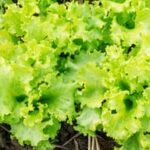Are Texas ants bad for vegetable gardens? Ants are a common nuisance for gardeners in the Lone Star State, but understanding their impact on vegetable gardens is crucial for effective pest management.
Texas is home to a variety of ant species, each with its own capabilities and tendencies. In this article, we will explore the role of ants in the ecosystem, their potential benefits and drawbacks for vegetable gardens, as well as how to maintain a balanced ecosystem while coexisting with these insects.
Ants are a ubiquitous presence in Texas vegetable gardens, and it’s essential to identify the types of ants commonly found in these environments. Understanding their behavior and characteristics can help gardeners determine the best course of action for managing ant infestations without causing harm to the overall ecosystem.
By being informed about the types of ants present in your garden, you can make more targeted decisions about pest control methods and better assess the potential risks they pose to your vegetables.
While ants are often seen as pests, they also play an important role in the ecosystem. From dispersing seeds to controlling other insect populations, ants can contribute positively to a vegetable garden’s overall health. However, there are instances where ants may be causing damage or disruption to your garden. Recognizing signs of ant-inflicted harm is crucial for implementing appropriate solutions and maintaining a thriving vegetable garden in Texas.
Types of Ants Commonly Found in Texas Vegetable Gardens
There are several types of ants commonly found in Texas vegetable gardens, each with their own unique characteristics and behaviors. One of the most common species is the Red Imported Fire Ant (Solenopsis invicta), known for its aggressive behavior and painful sting. These ants can quickly infest a garden and pose a threat to both plants and humans. Another common species is the Argentine ant (Linepithema humile), which forms large colonies and can also cause damage to vegetable crops.
Texas also has its fair share of carpenter ants, such as the Texas carpenter ant (Camponotus texanus). While these ants are not as aggressive as fire ants, they can still cause damage to wooden structures in the garden. Additionally, there are several species of small or tiny ants that can create nests in the soil of a vegetable garden, such as odorous house ants (Tapinoma sessile) and crazy ants (Paratrechina longicornis), which can potentially disrupt the ecosystem.
Understanding the types of ants present in your Texas vegetable garden is crucial for implementing effective pest management strategies. By identifying the specific species of ants in your garden, you can better tailor your approach to controlling ant infestations while minimizing harm to beneficial insects and organisms within the ecosystem.
The Role of Ants in the Ecosystem and Their Potential Benefits for Vegetable Gardens
Ants are a common sight in Texas vegetable gardens, and understanding their role in the ecosystem can help gardeners make informed decisions about managing ant populations. There are several types of ants commonly found in Texas vegetable gardens, including fire ants, carpenter ants, and odorous house ants. While some of these species can cause damage to plants and crops, it’s important to recognize that ants also play a vital role in the ecosystem.
One of the potential benefits of having ants in your vegetable garden is their role as scavengers and predators. Ants help to control populations of other insects, such as caterpillars and aphids, which can be harmful to vegetable plants. Additionally, ants play a crucial role in soil health by aerating the ground and increasing water infiltration. Some species even contribute to seed dispersal, aiding in plant regeneration.
Despite their potential benefits, there are signs that indicate when ants are causing damage to your vegetable garden. These signs include visible mounds or tunnels near plant roots, wilting or yellowing leaves, and a decline in overall plant health. It’s important for gardeners to monitor ant activity and take action if they suspect that ants are negatively impacting their vegetable crops.
| Types of Ants | Potential Benefits |
|---|---|
| Fire Ants | Control populations of other harmful insects |
| Carpenter Ants | Aerate the soil and increase water infiltration |
| Odorous House Ants | Contribute to seed dispersal for plant regeneration |
Signs That Indicate Ants Are Causing Damage to Your Vegetable Garden
When tending to your vegetable garden in Texas, it’s essential to be aware of the signs that indicate ants may be causing damage. By recognizing these signs early on, you can take necessary steps to mitigate the impact of ant infestations on your garden. Here are some common indications that ants are causing harm to your vegetable garden:
1. Soil disruption: If you notice loose soil or small mounds around the base of your plants, this could be a sign of ant activity. Ants create tunnels and nests in the soil, which can disturb the root systems of your vegetables.
2. Aphid infestations: Ants have a symbiotic relationship with aphids, as they feed on the sweet honeydew produced by these pests. If you spot an increase in aphid populations on your plants, it could be attracting ants and leading to further damage.
3. Wilting plants: Have you noticed any wilting or yellowing leaves on your vegetable plants? This could be a result of ants disrupting the root systems or creating nests near the plant roots, affecting their ability to absorb water and nutrients.
By staying vigilant and monitoring these signs, you can address potential ant-related issues before they cause significant damage to your beloved vegetable garden. In the next section, we will explore the potential harm caused by Texas ants in vegetable gardens and how to counteract their negative effects through natural remedies and beneficial insects.
The Potential Harm Caused by Texas Ants in Vegetable Gardens
Ants can pose a threat to the health and productivity of vegetable gardens in Texas. While some species of ants can be beneficial for the garden ecosystem, others can cause harm and damage to plants. Understanding the potential harm caused by Texas ants in vegetable gardens is essential for effective pest management and maintaining a thriving garden.
Plant Damage
Some species of ants, such as fire ants, can cause damage to vegetable plants by feeding on plant sap, tunnelling around plant roots, and protecting other pests like aphids that damage plants. This can lead to stunted growth, wilting, and even death of the affected plants. Additionally, the presence of ants can disrupt the delicate balance of the garden ecosystem, leading to decreased pollination and fruit production.
Soil Disturbance
Ant activity in vegetable gardens can also lead to soil disturbance. Ant nests and tunnels can disrupt the root system of plants, affect soil structure, and reduce water infiltration. This disturbance can impact the overall health of the garden by making it more difficult for plants to access essential nutrients and water.
Potential Spread of Diseases
Ants have been known to spread diseases in agricultural settings. If ants are present in large numbers in a vegetable garden, there is an increased risk of disease transmission from plant to plant. This can further compromise the health and yield of the garden crops. It is important for gardeners to be aware of these potential harms caused by Texas ants in order to implement appropriate pest management strategies.
Natural Remedies to Control Ant Infestations in Vegetable Gardens
If you are dealing with an ant infestation in your Texas vegetable garden, there are several natural remedies that can help you manage and control the problem. Here are some effective methods to consider:
1. Diatomaceous earth: This natural substance can be sprinkled around the perimeter of your vegetable garden to create a barrier that ants will avoid crossing. Diatomaceous earth is safe for plants and humans, making it an excellent choice for organic gardening.
2. Citrus peels: Ants tend to dislike the scent of citrus fruits, so placing citrus peels around your garden can deter them from entering the area. Simply save and scatter orange, lemon, or lime peels in areas where ants are prevalent.
3. Vinegar solution: Mix equal parts of water and white vinegar in a spray bottle and use it to directly target ant trails and entry points. The strong scent disrupts their pheromone trails, discouraging them from returning to those areas.
By incorporating these natural remedies into your gardening routine, you can effectively reduce ant populations without resorting to harmful chemicals that may negatively impact the environment and ecosystem of your garden.
Remember that maintaining a clean and tidy garden is also essential in preventing ant infestations. Removing food debris, keeping mulch from piling up against plant stems, and promptly addressing any moisture issues can all help make your garden less attractive to ants.
How to Attract Beneficial Insects to Counteract the Negative Effects of Ants in Vegetable Gardens
Understanding the Role of Beneficial Insects
Beneficial insects play a crucial role in maintaining the balance of ecosystems, including vegetable gardens. These insects help to control pest populations by preying on harmful insects, pollinating plants, and contributing to overall biodiversity. By attracting beneficial insects to your vegetable garden, you can effectively counteract the negative effects of ants and other harmful pests.
Identifying Beneficial Insects
Some common beneficial insects that can be attracted to vegetable gardens include ladybugs, lacewings, hoverflies, and parasitic wasps. These insects are natural predators of many garden pests, including aphids, caterpillars, and mites. By providing a hospitable environment for these beneficial insects, you can encourage them to take up residence in your garden and help keep pest populations in check.
Attracting Beneficial Insects to Your Vegetable Garden
There are several methods for attracting beneficial insects to your vegetable garden. Planting a diverse range of flowers, herbs, and native plants can provide food sources and shelter for these helpful creatures. Additionally, avoiding the use of chemical pesticides will ensure that you do not inadvertently harm the very insects you are trying to attract. Providing water sources such as birdbaths or shallow dishes filled with rocks can also attract beneficial insects to your garden.
By actively encouraging the presence of beneficial insects in your Texas vegetable garden, you can minimize the negative impact of ants and other harmful pests while promoting a healthy and balanced ecosystem.
Maintaining a Balanced Ecosystem in Your Texas Vegetable Garden
In conclusion, while ants may pose potential harm to Texas vegetable gardens, it is important to understand their role in the ecosystem and the potential benefits they can provide. By identifying signs of ant damage and implementing natural remedies to control infestations, gardeners can minimize the negative impact of ants on their vegetable gardens. Additionally, attracting beneficial insects can help counteract the effects of ants and contribute to a balanced ecosystem.
Gardeners in Texas should strive to coexist with ants by maintaining a balanced ecosystem in their vegetable gardens. By creating a habitat that supports a diverse range of insects, plants, and animals, gardeners can encourage natural predators of ants while also providing resources for beneficial insects. This approach not only helps control ant populations but also promotes overall garden health and productivity.
Ultimately, achieving harmony with ants in Texas vegetable gardens requires a combination of understanding their role in the ecosystem, monitoring for signs of damage, implementing natural control methods, and promoting biodiversity. By taking a holistic approach to garden management and coexisting with ants, gardeners can work towards maintaining thriving and sustainable vegetable gardens in Texas.
Frequently Asked Questions
Should I Worry About Ants in My Vegetable Garden?
It is natural to see ants in your vegetable garden, and they can actually be beneficial for the soil. However, if you notice a large number of ants or damage to your plants, it may be a sign of a problem.
Ants can protect aphids, which can harm your plants, so it’s important to monitor their presence and take action if necessary.
Is It OK to Have an Ant Colony in Your Garden?
Having an ant colony in your garden is not necessarily a bad thing. As mentioned earlier, ants can help with soil aeration and plant pollination. However, if their numbers become excessive or they start causing damage to your plants, then it may be necessary to manage their population.
How Do I Keep Ants Out of My Raised Vegetable Garden?
To keep ants out of your raised vegetable garden, there are several methods you can try. Creating a barrier around the garden using diatomaceous earth or cinnamon can deter ants from entering.
Removing potential food sources like spilled seeds or overripe fruits can also help reduce ant activity. Additionally, keeping the garden area clean and free of debris can make it less attractive to ants looking for shelter and food.

If you’re looking to get into vegetable gardening, or are just looking for some tips on how to make your current garden better, then you’ve come to the right place! My name is Ethel and I have been gardening for years. In this blog, I’m going to share with you some of my best tips on how to create a successful vegetable garden.





